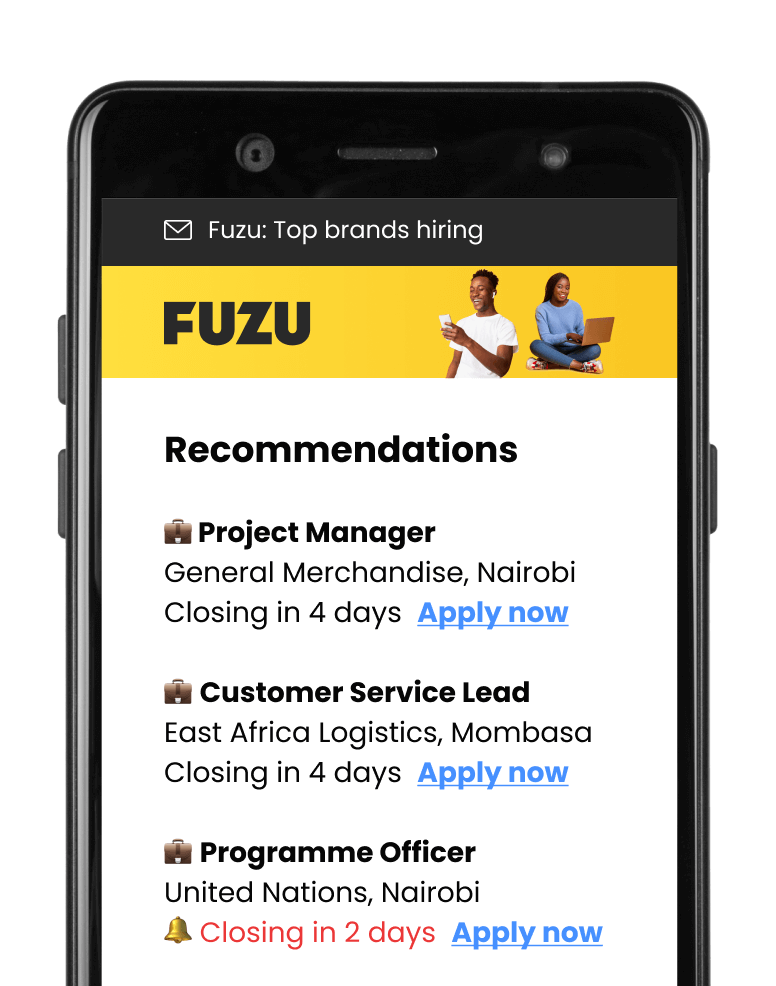Published
Last 1 week
Last 30 days
Latest 24 hours
Industry
Agriculture, fishing, forestry jobs
Banking, microfinance, insurance jobs
Consulting, business support, auditing jobs
Non-profit, social work jobs
Published
Profession
Industry
Seniority
3
jobs
DGB Group
Hoima, Uganda
The International Potato Center (CIP)
Kampala, Uganda
Lutheran World Federation
Adjumani, Uganda
Caritas Uganda
CLOSEDMbarara, Uganda
Intergovernmental Authority on Development (IGAD)
CLOSEDKampala, Uganda
EnviroServ
CLOSEDKampala, Uganda
Prolific Innovations Limited
CLOSEDKampala, Uganda

Get personalised job alerts directly to your inbox!
SNV Netherlands Development Organization
CLOSEDKampala, Uganda
Closing: May 6, 2024
12 days remainingPublished: Apr 24, 2024 (1 day ago)
Education:

Work experience:

Language skills:

Contract Type:

Sign up to view job details.
Requirements
Requirements

Applications submitted via Fuzu have 32% higher chance of getting shortlisted.